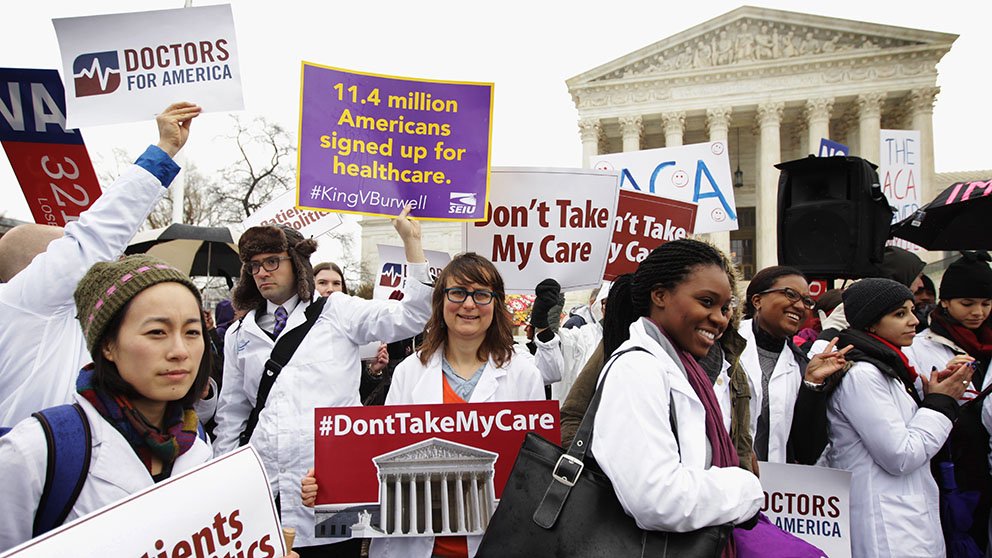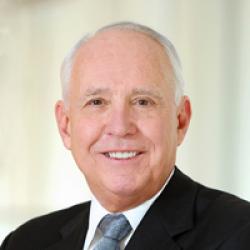
As I approach the end of my tenure at the AAMC, I’m often asked about the high point of my 13 years as president and CEO. Without reservation, I reply that it was when the AAMC made its final push to endorse and secure passage of the Affordable Care Act (ACA). I was proud that the AAMC Board of Directors stepped up to take a strong public stand on this legislation while many other organizations stayed on the sidelines waiting to see how the politics would play out.
As the voice of academic medicine, the AAMC has long held that high quality, affordable health care is the right of every American. The AAMC released a document in 2008, Principles for U.S. Health Care Reform: A Guide for Policy Makers, underscoring the crisis of access, cost, and quality in the nation’s health care system, well before the ACA was passed in 2010.
The evidence is overwhelming that people with health insurance have a huge advantage. People without coverage are more likely to suffer declines in overall health — the result of little or no preventive care and delays in care that cause more severe problems or hospitalizations. Other studies have shown improvements in self-reported health and certain health outcomes measures in individuals who live in states that expanded their Medicaid program.
Given our commitment to the well-being of our patients, supporting the ACA was an ethical, not a partisan, decision. It was gratifying to see the numbers of uninsured Americans decline to historically low levels after the ACA took effect in January 2014. The number of uninsured nonelderly Americans dropped from over 44 million in 2013 to just below 27 million in 2016.
Given this impressive success, it is distressing to see our progress show signs of regressing. The Kaiser Family Foundation reported that the number of uninsured people jumped by nearly 700,000 people in 2017. This was the first increase in uninsured Americans since the ACA first extended insurance coverage to millions more people. In addition, another study found that the number of children in the United States without health insurance increased in 2017 for the first time in more than a decade.
Without access to affordable coverage, we will see more Americans forego or delay necessary medical care, putting millions of lives at risk and driving up costs to the system.
And the decline continued last year. A Gallup survey showed that by the close of 2018, 13.7% of adults in the country had no health insurance, up from 10.9% at the end of 2016. This marked the highest uninsured rate since 2014, when the major provisions of the ACA went into effect. The greatest increase in the uninsured occurred among women, younger adults, and low income persons.
The impact on people who have lost their insurance has even greater implications today than before the ACA. Health care costs are the highest they have ever been, compounded by a dramatic rise in pharmaceutical costs. We have seen an uptick in media stories about tragedies resulting from families unable to afford treatment or prescriptions. In 2017, more than 1 in 4 uninsured adults said they delayed or went without health care due to cost factors.
Teaching hospitals have been on the front line to help uninsured Americans. AAMC members provide 31% of all hospital charity care and 25% of all Medicaid inpatient services, while comprising only 5% of the acute care, general service hospitals in the country. But the safety net we provide is not enough to close the access gap for the uninsured. Only public policy intervention can do that.
A call for responsible health care legislation
In a report last year, the Commonwealth Fund attributed the declining uninsured rate largely to federal actions that reduced ACA outreach and enrollment funding, along with a failure to address health plan affordability in the individual market. Shorter open-enrollment periods also contributed to fewer individuals purchasing insurance.
A Kaiser Family Foundation analysis points to several factors behind the recent rise in people without insurance: 1) their state did not expand Medicaid; 2) they are subject to immigrant eligibility restrictions; 3) their income makes them ineligible for financial assistance; 4) they are eligible but the insurance options are unaffordable; or 5) they lack the knowledge to obtain coverage.
As of January, Americans no longer have to pay a penalty if they don’t carry insurance, which has resulted in rising premiums. The Congressional Budget Office estimated that this will lead to about 8 million more uninsured people in 2027. In addition, state policy changes are precipitating declines in people covered by Medicaid, and 14 states still have not opted for any Medicaid expansion.
Watching our efforts unravel to improve health care accessibility is beyond troubling. We took a strong stand on the Texas federal court’s effort to declare the ACA unconstitutional and will follow this case closely through the appeals process. The AAMC is committed to supporting policies that seek to increase coverage, as was intended when the ACA was passed.
The AAMC is urging the federal government to enact policies that extend ACA coverage gains and improve cost protections on individual market and employer plans.
Dismantling any of its provisions is a disaster for the health care system, unless it is part of another comprehensive reform package providing equal or better coverage. We have yet to see such a package, including during the “repeal and replace” debate.
Now 20 months away from the next presidential election, health care continues to be a top issue for voters, as it was in the 2018 midterms. Without access to affordable coverage, we will see more Americans forego or delay necessary medical care, putting millions of lives at risk and driving up costs to the system.
As such, the AAMC is urging the federal government to enact policies that extend ACA coverage gains and improve cost protections on individual market and employer plans. Or if legislators come up with alternate strategies in the interest of our patients, we would consider supporting that as well.
With the 2020 election in sight, I am hopeful that health care will remain in the spotlight. We must stand by our guiding principles to avoid going backward. The AAMC will continue to work with policymakers to ensure that all Americans receive the comprehensive insurance coverage and high-quality health care they need and deserve.
